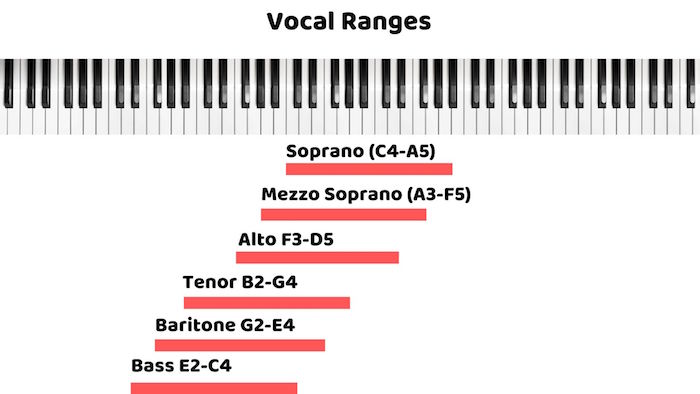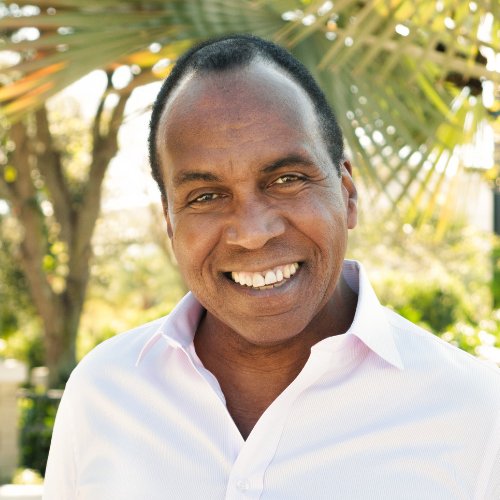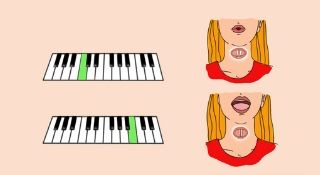What Is My Voice Type?
My coaching clients often ask me, “What's my voice type?”
Voice type can mean a few different things, so lets look at them one by one.
Measure Your Vocal Range
Your vocal range is one thing that determines your voice type.
In women, the major categories from high to low are soprano, mezzo-soprano, and alto.
For men, they are tenor, baritone, and bass. Your voice will correspond to one of those categories more predominantly.
For example, my voice, being a male voice and being a little deeper, sits more in a baritone range, which is higher than a bass voice and lower than a tenor.
The Secret To Star Singing
Click HERE For The Secret To Star Singing
The Secret To Star Singing
Click HERE For The Secret To Star Singing
How To Determine Your Vocal Range

Your range might be different than mine, and you can figure out your vocal range easily enough.
If we use the New Harvard Dictionary of Music definitions, with C4 as middle C, for women the ranges are:
- Soprano C4 to A5
- Mezzo Soprano A3 to F5
- Alto F3 to D5
For men, the ranges are:
- Tenor B2 to G4
- Baritone G2 to E4
- Bass E2 to C4
So the first thing you can do to check your vocal range is sit at a piano and see where your voice sits.
If you don't play piano yourself, ask a friend who does! Refer them to this page and ask them where your vocal range lies.
Voice Type Includes Many Things
You can figure out your range, but your voice type might include many different things, such as the weight of your voice (light or heavy), the timbre (quality and texture), and even your physical characteristics.
You may have the ability to mix different voices together, and that's really brilliant. And when you do that, you're also using your body more correctly.
Find the Sweet Spot Within Your Range
Find your sweet spot. The official term for this is “tessitura,” which really just means the part of your range in which you are most comfortable.
Finding your own sweet spot is an important part of discovering your voice type.
When I sing in my sweet spot, it's the part of my range that is easiest to produce. But then I also want to have variation.
So I'm going to develop my lower range and get more of that, and I'm going to develop more of my upper range.
But my sweet spot is still my particular voice type, and that will be yours as well. So you will discover both the extent of your range and the part of your range where it's really easy for you to sing, which is going to be that middle place where your particular sweet spot is.
In the end, don't worry too much about what your particular voice type is. Mainly figure out where that sweet spot is in your voice, because you do have a sweet spot!
About The Author
 Roger Burnley - Vocal Coach Roger Burnley - Vocal Coach |
Roger Burnley is a vocal coach located in Hollywood, California. He has been teaching singers for over 30 years and singing for even longer than that.
Notable past and present clients include Macy Gray, Brandy, Ray J, The Beastie Boys, James Torme, Taylor Lautner, Nona Gaye, and many more.
His clients have collectively sold more than 30 million albums, with several reaching Platinum and Gold status.
Roger has been featured on VH1, TV Guide Channel, TV One,
and MTV appearing as a vocal expert.
About The Author
 Roger Burnley - Vocal Coach Roger Burnley - Vocal Coach |
Roger Burnley is a vocal coach located in Hollywood, California. He has been teaching singers for over 30 years and singing for even longer than that.
Notable past and present clients include Macy Gray, Brandy, Ray J, The Beastie Boys, James Torme, Taylor Lautner, Nona Gaye, and many more.
His clients have collectively sold more than 30 million albums, with several reaching Platinum and Gold status.
Roger has been featured on VH1, TV Guide Channel, TV One,
and MTV appearing as a vocal expert.









New! Comments
Show me you're alive! Leave a comment below...